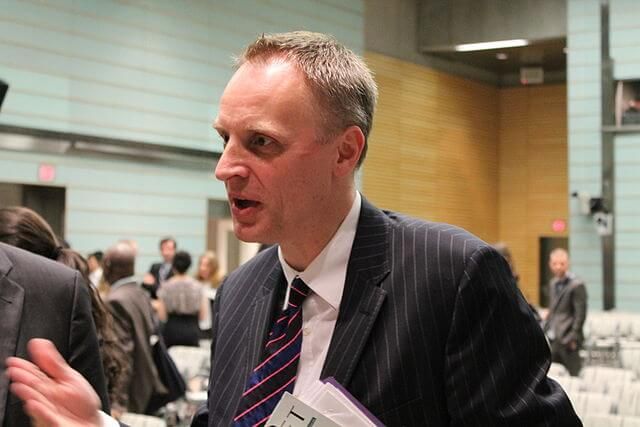Today’s Top Stories
1. An Iranian nuclear physicist killed in 2007 was murdered by the Revolutionary Guard, not Israel. That’s what the scientist’s sister tells The Media Line:
When Iranian scientist Dr. Ardeshir Hosseinpour was killed in February 2007, the cause of death was reported to be “gassing” and most presumed the act was carried out by Israel. That belief stood, largely because of Iranian accusations to that effect; and because of Israeli policy to neither confirm nor deny such acts. But now, seven years later, Mahboobeh Hosseinpour has come forward with the claim that the IRI was behind her brother’s death because of his refusal to be involved in Iran’s nuclear enrichment program whose use was for atomic purposes.
2. Prime Minister Netanyahu addressed the UN (video or transcript), primarily discussing Operation Protective Edge, Mideast peace, Iran and ISIS. The speech got a thumbs-down from the US State Dept. ahead of Bibi’s meeting with President Obama today.
For what they’re saying about the speech, see David Horovitz, Herb Keinon, Nahum Barnea, Raphael Ahren, Barak Ravid, Tal Shalev, Jonathan Tobin, and a New York Daily News staff-ed.
3. Are Israel and Hamas on the verge of agreeing on another prisoner swap? Israel HaYom reports that the two sides are closing in on a deal in which Hamas would release the bodies of IDF soldiers Sgt. Oron Shaul and Lt. Hadar Goldin; Israel would free Hamas operatives arrested in the West Bank during the search for three teenagers kidnapped and killed during the summer.
4. Academic Boycott Making Resurgence on Campus: Discredited last year, academic boycotts are making a comeback.
5. Defending a Professor’s Freedom of Speech? The New York Times misses the forest for the trees by framing the Steven Salaita controversy as one of free speech and not getting into the substance of his incendiary tweets.
Israel and the Palestinians
• Richard Horton, the embattled editor of The Lancet is visiting Israel this week and tweeting his impressions. Horton says he will “listen and learn,” and to “quietly explain” his actions, Professor Gerald Steinberg expects Horton use the visit to whitewash his history of Israel-bashing:
Indeed, Horton can be expected to exploit this visit in order to claim legitimacy from the Israeli medical community, so that he can continue in his position and exploit the façade of medicine to promote himself and his private agenda. There is no basis for expecting that under Horton, the Lancet will begin publishing articles on the morality of the Israeli medical community, or on the legitimacy of responding to Palestinian terror. Instead, in responding to accusations of misconduct in Britain, Horton will be able to refer to Israeli hospitals and seminars at which he was welcomed, and to the complex and differing perspectives.
Some mistakes can be corrected, some crimes can be forgiven, and some apologies can be accepted. But not in this case; damage from chronic and hate-filled political warfare is irreversible. Horton has been irrevocably named and shamed; if he does not resign, it is up to the publisher, the global Reed Elsevier Group, to do the right thing.

• Israeli cargo ship heads for Los Angeles to unload after Oakland BDS protest.
Commentary/Analysis
• Left-wing Israeli academic Noah Efron responds to Mairav Zonszein in a refreshingly frank way:
But we haven’t been silenced. We’ve just failed to make our case. For a dozen years, we have failed to win a majority in the Knesset. We have failed to convince other Israelis that the cost of holding onto the occupied territories is greater than the dangers of relinquishing them. In Zonszein’s analysis, this is because a right-wing cabal has shut us up, and there’s little we can do about it.
The truth is, we’ve failed because we’ve failed, and there is a lot we can do about it. Rather than whine in the New York Times about how we’ve been silenced, we need to figure out how to speak to other Israelis so that they will listen. The answer is not to convince readers of the New York Times that Israel is no longer a democracy. The answer is to accept that Israel is a democracy, and that democracy demands that we speak to our fellow citizens and listen to them, that we persuade them rather than dismiss them. Zonszein argues that democratic politics in Israel are hopeless. The fact is, it is in Israeli democracy that our greatest hope lies.
• Matthew Kalman weighs in on Amira Hass being kicked out of a Bir Zeit U. symposium merely for being Israeli:
If Birzeit and the other Palestinian universities spent less effort intellectually straitjacketing their students, and more time teaching them how to think critically and independently, the Palestinian future would look a lot brighter.
• A Washington Post staff-ed blisters Mahmoud Abbas’s UN speech, describing it as bridge-burning, mendacious, and grandstanding.
• Are ISIS-like groups entrenching themselves in Gaza and Sinai? Is the next ground zero of global jihad on Israel’s doorstep? asks Aaron Zelin.
Image: CC BY flickr/Kamyar Adl
For more, see yesterday’s Israel Daily News Stream and join the IDNS on Facebook.

